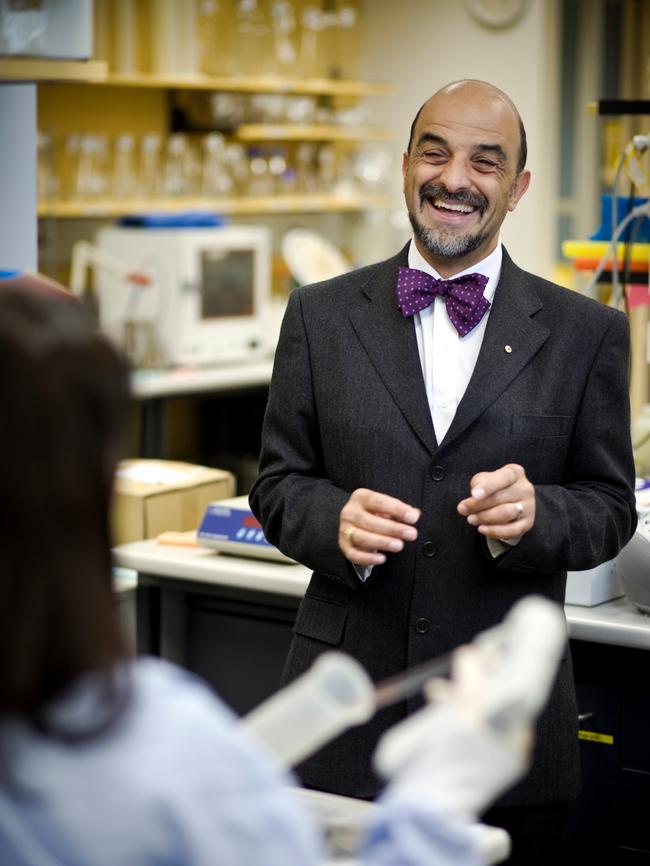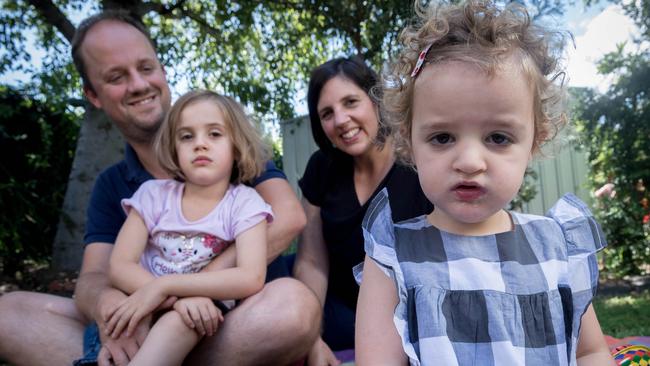Murdoch Childrens Research Institute diagnose 100 kids’ mystery illnesses
IN A medical milestone, 100 Victorian children have received a diagnosis for their mystery genetic disorders through a revolutionary technology.
VIC News
Don't miss out on the headlines from VIC News. Followed categories will be added to My News.
IN a medical milestone, 100 Victorian children received a diagnosis for their mystery genetic disorders through a revolutionary technology that zeroes in on the cause of their conditions.
Using genomic sequencing, Murdoch Childrens Research Institute and Melbourne Genomics Health Alliance have transformed the lives of families facing an agonising search for answers.
MCRI chair of genomic medicine Professor John Christodoulou said it was a “once-in-a-generation disruptive technology” that will transform the way medicine is practised.

For families, a diagnosis can also deliver a confronting prognosis, but for most there is comfort in getting off the “diagnosis treadmill”.
It may mean that their child can stop having invasive tests or start surveillance for health ailments associated with their disorder.
“Occasionally we find because we now know the gene involved, we can actually target a therapy based on our understanding of the gene that can potentially have direct benefit to the child in terms of stabilising the disorder or even improving it,” Prof Christodoulou said.
Some families have found out that other siblings are also affected but, for others, knowing the condition was a genetic fluke gives them confidence to have another child.
Nelle Hookins is one of the 100 children given a diagnosis after repeated hospital admissions for respiratory problems and exhibiting low muscle tone and a small head.
It took 11 hospital admissions, 15 specialist appointments, hundreds of hours of research and, finally, genomic testing before her parents knew what was wrong with their baby girl.

By having her genome sequenced, to detect tiny spelling mistakes in the genetic code, MCRI’s Dr Zornitza Stark was able to inform the family that Nellie had a rare disorder.
Cohen syndrome results in developmental delay, low muscle tone and a small head. It affects her entire body — from her brain development, to the growth of her head to her blood system and eyesight.
“Without a diagnosis we would still be frantically searching the internet,” mother Amanda said.
“The fear that gripped us has dissipated because I know why she is the way she is now.
“I know we couldn’t have predicted it.”


